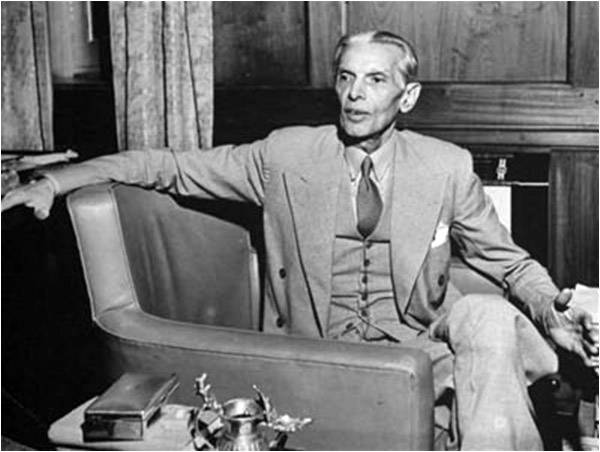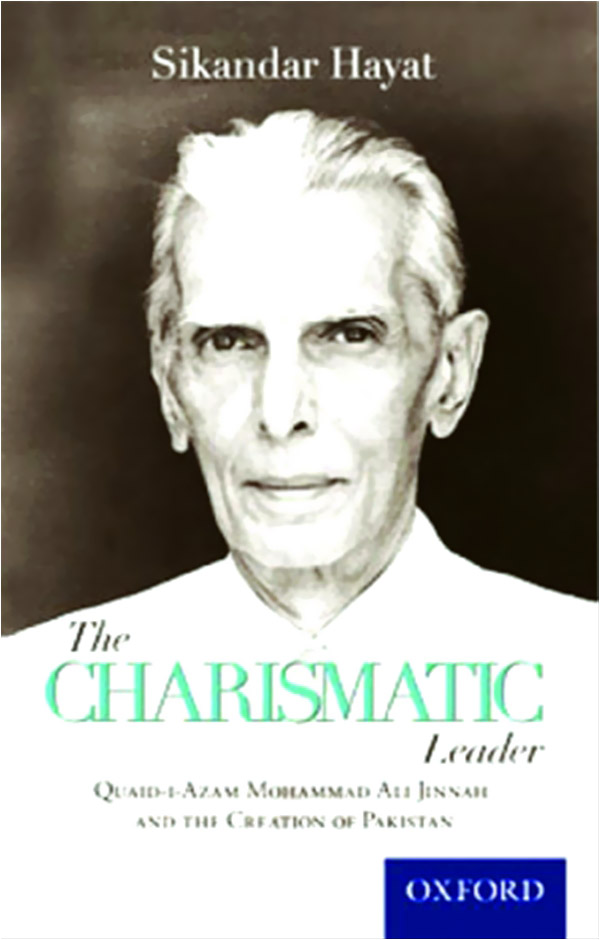

‘The ex-cricketer turned politician Imran Khan is by definition a charismatic leader’ writes the lawyer Yasser Hamdani in an issue of The Criterion Quarterly. He views Imran from the oft-quoted perspective of Max Weber and within a space of four sentences declares Imran Khan the ‘Charismatic Leader.’ While this popular notion of charisma persists, Professor Sikandar Hayat, who is currently the Distinguished Professor of History and Public Policy at Forman Christian College Lahore, gives another view in The Charismatic Leader: Quaid-e-Azam Mohammad Ali Jinnah and the Creation of Pakistan. Dr Sikandar notes that there was another, genuine, compelling perspective too, in his [Weber’s] later writings. In Politik als Beruf (Politics as a Vocation) he rules out the possibility of any useful transformation of gesellschaft (community and society) through a charismatic leader who was not sober and rational. He calls any kind of specifically irrational and “emotional” behavior of political leaders “false charisma.” It is in this perspective that Hayat calls Jinnah—the undisputed leader of Muslim India by 1947, as the Charismatic Leader.
By departing from the usual narrative on Jinnah and using Max Weber’s little known, but very important, second perspective of charisma on Jinnah, Dr Hayat has broken new ground in historical research. His multidisciplinary approach helps us to fully appreciate the importance and role of Jinnah for the Muslims of India. Hayat’s arguments also enable us to understand how Jinnah—seemingly an aloof English speaking, matter-of-fact lawyer, could claim the allegiance of the vast majority of Indian Muslims by the 1940s. This indeed was Jinnah’s greatest achievement and Dr Hayat’s aides are understanding of it from both a historical and sociological perspective.
The first chapter on charisma is followed by a chapter on the early career of Jinnah so as to introduce the reader to the person and his initial forays into Indian politics. The next two chapters outline the situation of the Muslim community in India from the time of Sir Sayyed Ahmed Khan and highlights its ‘systemic’ and ‘leadership’ crises. It was in these conditions that Jinnah emerged as the charismatic leader, when no one else could assume that mantle, Hayat argues. In chapter four, Hayat systematically analyses the role and function of Muslim leadership—the social elite, the provincial leaders and the ulema—and comes to the conclusion that ‘…the traditional Muslim leadership, as a whole, failed to produce any far-sighted leader who could understand the difficult, distressful situation faced by the Muslims, rise above their own narrow sectional concerns, and show them a way out.’ It was due to this failure, that Jinnah, in the words of the editor of his papers, Professor Z.H. Zaidi—also quoted by Hayat—‘“wrested the leadership of the Muslim community,” from his “colleagues” and “competitors” with “an ease that baffled observers.”’
The next three chapters focus on how Jinnah accepted and then realized his mission of creating a separate state for Indian Muslims—Pakistan. Quoting Jinnah himself, Hayat argues that ‘He was convinced that Pakistan was “not only a practicable goal but the only goal” for the Muslims.’ Here Dr Hayat also tackles the celebrated argument of Professor Ayesha Jalal in her book ‘The Sole Spokesman: Jinnah, the Muslim League and the Demand for Pakistan,’ that Jinnah was using the Pakistan demand as a bargaining counter to achieve better concessions for Indian Muslims, and that Jinnah’s acceptance of the Cabinet Mission plan in 1946 was an example of it. In return, Hayat argues: ‘…as a[n] astute strategist that he was, Jinnah accepted the plan more out of tactical considerations than any compromise on the fundamental principle of Pakistan. He was aware of his limitations after the end of the war…As a charismatic “genuinely principled politician,” he knew that he had to act with reason and a “sense of responsibility and objectively.”’ This is certainly an alternate perspective and needs to be taken seriously.
"Jinnah wrested the leadership of the Muslim community, from his colleagues and competitors with an ease that baffled observers"
Like any other work, this study has its limitations. While Hayat tackles the issue of charisma and Jinnah’s personification of it in an excellent manner, he does not cover the whole career of Jinnah—something which would have completed the work. In fact, Hayat himself notes that ‘… a greater understanding of the problems of “routinization” of charisma after the charismatic leader had attained his goal,’ has not been addressed in the present work. I do hope that either Professor Hayat or one of his students investigates this issue in the not too distant future.
The writer teaches History at Forman Christian College Lahore and tweets at @BangashYK. He can be contacted at: yaqoob.bangash@gmail.com

